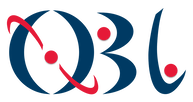Paid Internship Opportunity
Quantum Biology Laboratory, Howard University (Washington, DC) Position Opening: Internship for Undergraduate and Graduate Students
For more information, click here.
The Quantum Biology Laboratory (QBL) at Howard University in Washington, DC, has received a five-year grant from the Sloan Foundation to support its growing undergraduate and graduate internship program. Complementing the QBL’s current Sloan Matter-to-Life award, this internship grant will enable the QBL to nurture the talents of emerging young scientists through the creation of tailored research experiences to “explore quantum life” at the intersections of quantum optics, biological physics, condensed matter, molecular dynamics, neuroscience, informatics, and spectroscopy.
The QBL is seeking undergraduate and graduate interns to commit to at least two academic semesters, or an academic semester and a summer, at a minimum commitment of 15 hours per week. Graduate students selected for the program would also serve as mentors for younger trainees. These internships can be organized remotely for those with suitable qualifications not based in the Washington metropolitan area.
QUALIFICATIONS
· Currently enrolled in a four-year undergraduate program (3rd or 4th year preferred), recent graduate, or enrolled in a masters or doctoral program. 1st and 2nd year undergraduates with limited research experience may be accepted on a trial basis as unpaid interns.
· Currently majoring in physics, biophysics, biochemistry, chemistry, computer science, mathematics, neuroscience, or closely related discipline, with significant interest in equations and computation.
· Familiarity with Chimera, PyMOL, GROMACS, or similar biomolecular modeling software and programming experience in Python, Fortran, or C desired.
· Experience in high-performance computing and/or coding-intensive projects a plus.
· Experience working in or closely with experimental groups a plus.
· Strong interest in science and eagerness to learn.
· Excellent communication, writing, and interpersonal skills.
HOW TO APPLY
· Interested candidates should submit a CV/resume and a cover letter outlining their qualifications and overlap with QBL research areas to quantumbiolab@howard.edu.
· Submit information for three (3) references, including name, job title, and email address, from professors in STEM classes and/or supervisors in STEM research to quantumbiolab@howard.edu.
· Please include "[Undergraduate/Graduate] Internship Application" in the subject line of your email, selecting the appropriate student status.
· Applications will be accepted on a rolling basis, based on availability.
Last updated 3/28/2024
For more information, click here.
The Quantum Biology Laboratory (QBL) at Howard University in Washington, DC, has received a five-year grant from the Sloan Foundation to support its growing undergraduate and graduate internship program. Complementing the QBL’s current Sloan Matter-to-Life award, this internship grant will enable the QBL to nurture the talents of emerging young scientists through the creation of tailored research experiences to “explore quantum life” at the intersections of quantum optics, biological physics, condensed matter, molecular dynamics, neuroscience, informatics, and spectroscopy.
The QBL is seeking undergraduate and graduate interns to commit to at least two academic semesters, or an academic semester and a summer, at a minimum commitment of 15 hours per week. Graduate students selected for the program would also serve as mentors for younger trainees. These internships can be organized remotely for those with suitable qualifications not based in the Washington metropolitan area.
QUALIFICATIONS
· Currently enrolled in a four-year undergraduate program (3rd or 4th year preferred), recent graduate, or enrolled in a masters or doctoral program. 1st and 2nd year undergraduates with limited research experience may be accepted on a trial basis as unpaid interns.
· Currently majoring in physics, biophysics, biochemistry, chemistry, computer science, mathematics, neuroscience, or closely related discipline, with significant interest in equations and computation.
· Familiarity with Chimera, PyMOL, GROMACS, or similar biomolecular modeling software and programming experience in Python, Fortran, or C desired.
· Experience in high-performance computing and/or coding-intensive projects a plus.
· Experience working in or closely with experimental groups a plus.
· Strong interest in science and eagerness to learn.
· Excellent communication, writing, and interpersonal skills.
HOW TO APPLY
· Interested candidates should submit a CV/resume and a cover letter outlining their qualifications and overlap with QBL research areas to quantumbiolab@howard.edu.
· Submit information for three (3) references, including name, job title, and email address, from professors in STEM classes and/or supervisors in STEM research to quantumbiolab@howard.edu.
· Please include "[Undergraduate/Graduate] Internship Application" in the subject line of your email, selecting the appropriate student status.
· Applications will be accepted on a rolling basis, based on availability.
Last updated 3/28/2024
